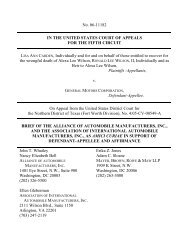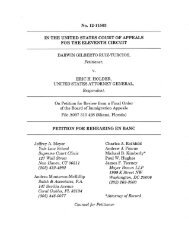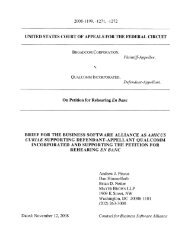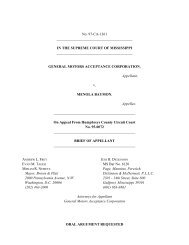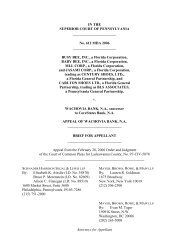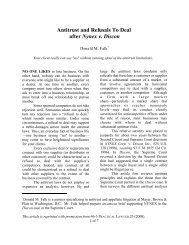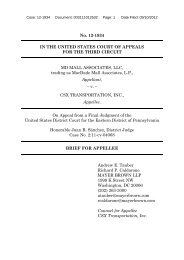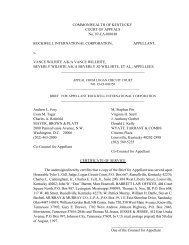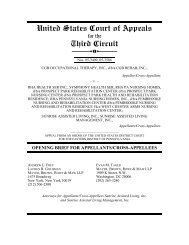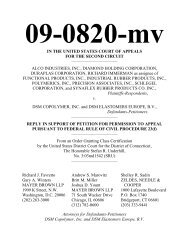No. 5-99-0830 IN THE APPELLATE COURT OF ... - Appellate.net
No. 5-99-0830 IN THE APPELLATE COURT OF ... - Appellate.net
No. 5-99-0830 IN THE APPELLATE COURT OF ... - Appellate.net
Create successful ePaper yourself
Turn your PDF publications into a flip-book with our unique Google optimized e-Paper software.
anned the parts, deemed specification of such parts to be fraudulent, or required disclosure<br />
of “possible safety concerns” or part “inferiority.” Instead, the vast majority of states allow<br />
specification subject to consent or disclosure, and two states — Massachusetts and Hawaii<br />
— affirmatively favor the use of non-OEM parts. See page 7, supra.<br />
The circuit court decided that it knew better than all the state legislatures in America.<br />
It implicitly assumed that all non-OEM parts are inferior; that consent pursuant to state<br />
statutes is never valid; that state-mandated disclosures are always deceptive; and that the<br />
express preferences of Massachusetts and Hawaii for non-OEM parts have no practical<br />
effect. ICFA has never before been used to arrogate power in this way, and this Court<br />
should not permit it now.<br />
Plaintiffs undoubtedly will respond, as they have before, that no state would tolerate<br />
specification of non-OEM parts that are not of “like kind and quality,” making the circuit<br />
court’s factual finding of inferiority consistent with the various states’ laws. C. 30964. But<br />
this twisted reasoning ignores the legislative record. Every state that authorizes use of non-<br />
OEM parts has concluded — often based on extensive hearings — that at least some<br />
significant number of non-OEM parts are of like kind and quality; otherwise, the numerous<br />
statutes authorizing (or affirmatively requiring) the use of non-OEM parts would have been<br />
meaningless acts. See, e.g., R. 10684-85, 11879-80.<br />
Thirty-seven states have concluded that consent or specified disclosures are sufficient<br />
to protect consumers. These states could have required the disclosures that the circuit court<br />
apparently deemed necessary, but none did. Indeed, the circuit court converted state<br />
disclosure laws into traps for the unwary, because there is no way to comply without<br />
-132-



